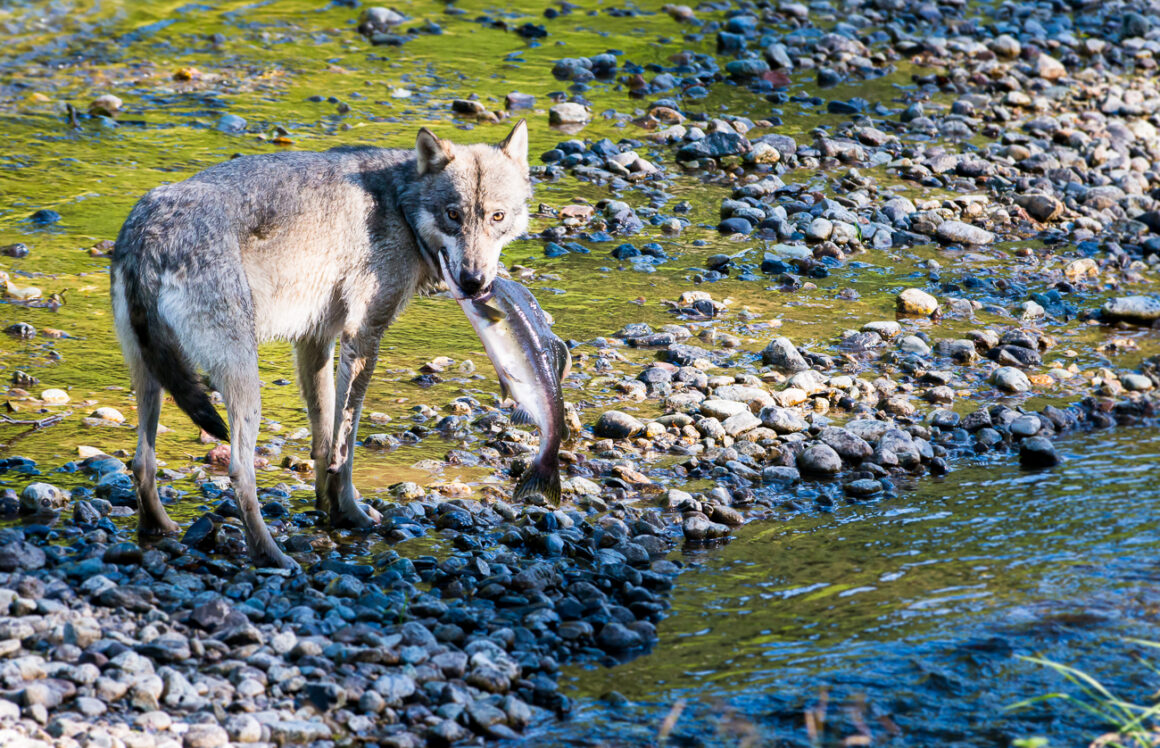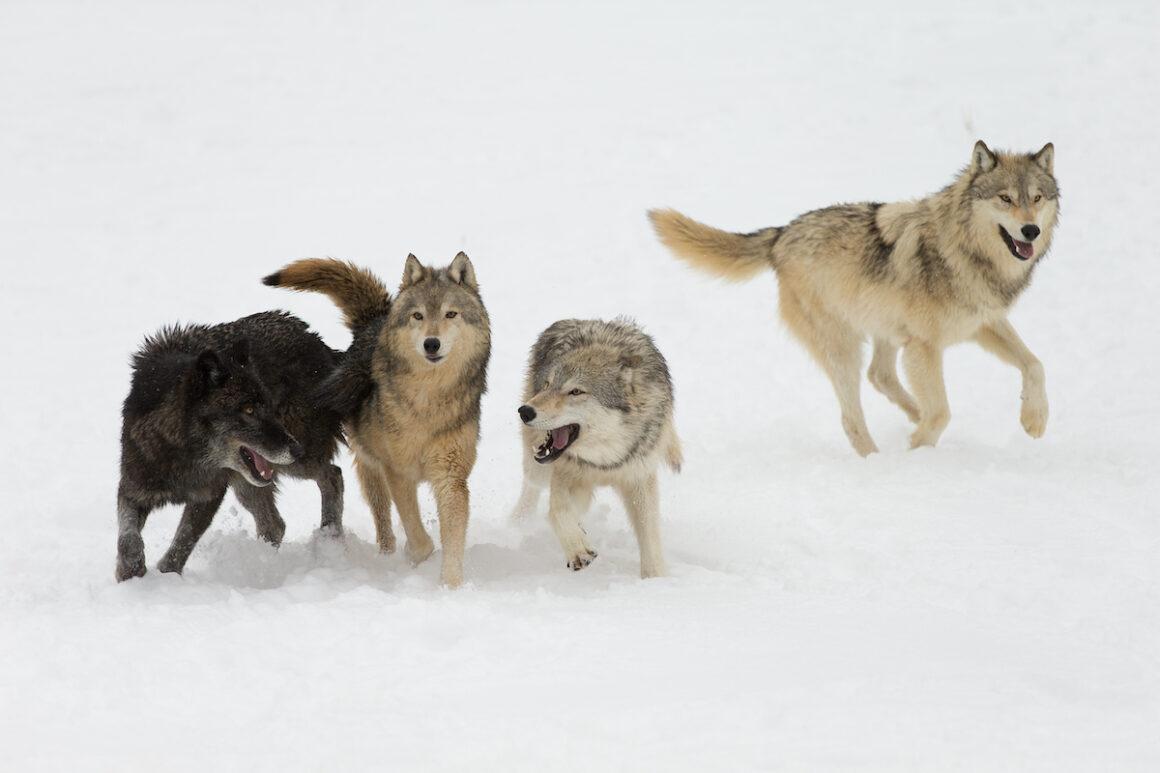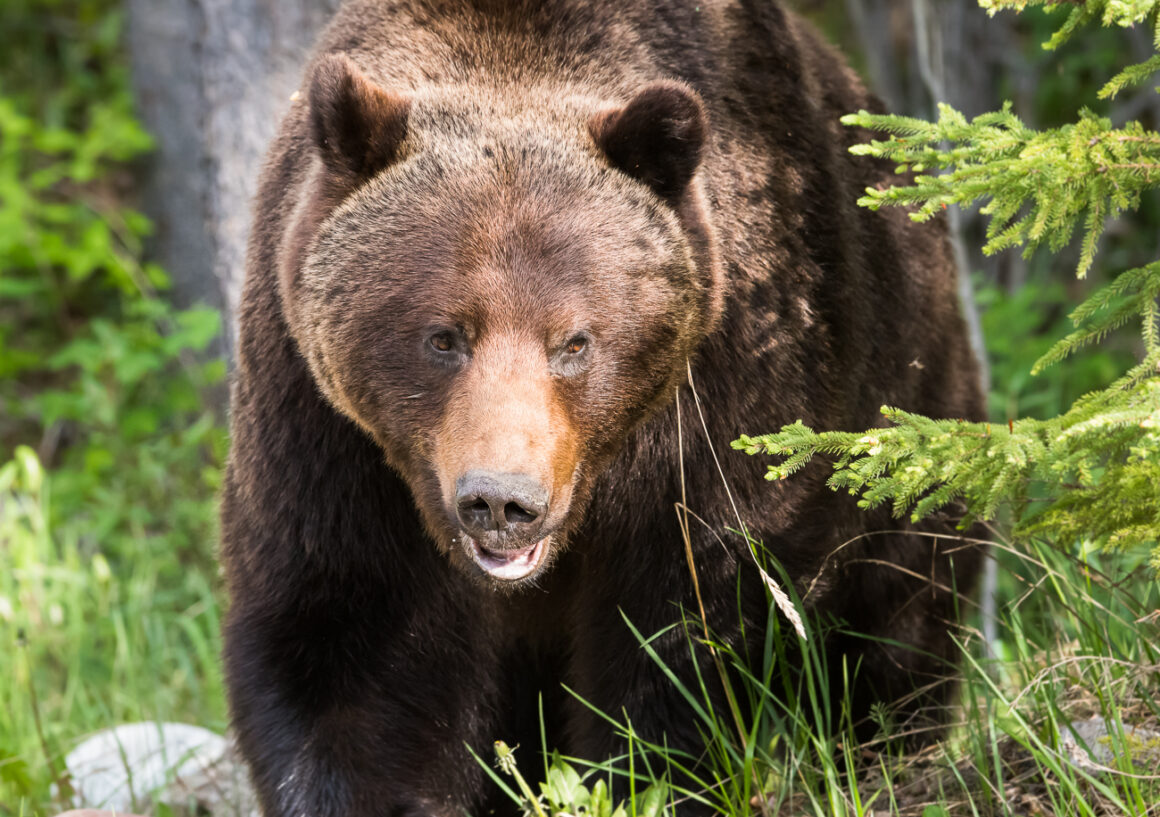Canada, we have a problem.
A few actually.
What’s at issue? US President Donald Trump has imposed tariffs on Canadian goods. Which sounds boring until you realize the impact it will have on our nation.
The tariffs will devastate our economy, forcing mass lay-offs and business closures, driving inflation to new heights (increasing the cost of everything in the process), making the housing crisis worse, and generally lowering the quality of life we’ve come to expect.
And that’s not all.
The tariffs are deepening divisions in our country. The question of how to counter Trump’s trade war is pulling our nation apart at a time when Canada’s sovereignty is being threatened. By America. By many nations.
Oh, and don’t forget the issues we’ve been discussing in this class: Indigenous rights, social expectations, pre-existing economic struggles, environmental sustainability. Not only is there no appetite for discussing other pressing issues in a time of crisis, we’re running the risk of actively setting back other priorities in the name of addressing the tariff war.
This is scary. It’s also confusing. And while we might not be able to ease your fears, we can make this whole issue less confusing. So, let’s start here:
Grizzly bears who live in rainforest ecosystems require salmon for survival. And salmon aren’t free! It costs bears calories to run after, jump, and kill a salmon. But the cost – the calories required – to catch a fish isn’t always the same.
All ecosystems – all economies – are influenced by external factors. Like the global environment! It’s what dictates supply and demand, the basis for determining the cost of everything.
Let’s say compounding environmental challenges mean there are fewer salmon spawning in the river this year, and that means there are larger distances between the fish a bear needs to catch.
Now, as you know, bears aren’t exactly graceful fishers, nor are they actually that good at it. But they’re big and flop hard and so they rely on the quantity of salmon to increase their odds of just getting lucky.
With fewer salmon in the river, fish can maneuver around bears more easily, and that means bears have to work harder – spend more calories – to catch fish in the quantities they’re accustomed to eating. That inflates the cost of the salmon for a bear, and makes living in this ecosystem more costly.
What to do?
Well, if you’re a big grizzly bear, you’ve got options. The grizzly can deploy a protectionist strategy, say – it can decide to protect its home from other competitors by chasing away the competition. A tariff, if you will.
Think of it this way:
Maybe the grizzly once tolerated wolves sharing the river. Fewer fights? That’s always a good thing. Plus, healthy wolves mean more wolf kills lying around to eat! I mean, a grizzly isn’t taking down a moose, but a wolf pack might!
Reciprocity is awesome!
Until the cost of salmon goes up.
In times of crisis, for most species, it’s us versus them. And a big grizzly can make the wolf pay a tariff to eat from the same salmon supply. That tariff isn’t really about charging a tax, it’s about making life so hard for wolves to fish that they cut their losses and get out of the fish business entirely.

And, yeah, maybe chasing off the wolf will cost the grizzly a few calories. But without wolves around in the long-term? The cost of salmon should drop for the grizzly (and the grizzly alone) because while salmon stocks might be down, at least fewer animals will be eating the salmon. Suddenly? The river is back to the glory days of old!
Maybe.
Why maybe? Well, there’s a chance that even with less competition, the calorie cost of eating salmon will still be higher than it once was – there’s the chance the whole tariff the competition doesn’t actually fix the problem. And that’s not the only problem.
There’s the wolf’s response to consider.
The wolf might find another stream – another market for fish. Maybe another grizzly on another river finds value in the reciprocal relationship between the two species. Good for the wolf and, maybe just maybe, bad for the tariff-imposing grizzly because it might turn out the wolf helped keep other bears from entering the river. The law of unintended consequences!
But, in fairness, that’s a big if. After all, in nature and politics, few are willing to throw a lifeline to a competitor, especially when things are in a state of flux and everyone is worried about their lives or their agenda.
So, what else might a wolf do when faced with a salmon tariff? How about fighting back!

The wolf doesn’t have the grizzly bear’s claws. Or its size. Or its strength. But if the wolves are united as a pack? Yeah, they have a shot. But the fight is a numbers game and if one wolf is worried about getting hurt in the fight and decides to sit it out? Eek, the odds of winning aren’t going up.
Would a pack member sit out the fight?
Well, remember that old concept of survival of the fittest? Wolves definitely do and, as that old joke goes, the wolf fearful of the grizzly doesn’t have to outrun the bear, it just has to outrun the slowest wolf in its pack.
What does that mean? Well, maybe a united pack fight isn’t in the cards. Maybe it’s every lone wolf for itself…until we remember that history and science tell us lone wolves don’t have a great chances of success.
What options are left? Hope the grizzly reconsiders the value of the once vaunted grizzly-wolf alliance? I mean, hope is about as nice as a rainbow: it easily and quickly evaporates.
And maybe this isn’t the time to bring it up, but what if the wolf appeases the grizzly and the grizzly decides a tariff on diminishing fish isn’t enough. Maybe it wants the entire wolf territory to itself? That’s the problem with appeasement.
Oh! And if the wolf does appease the grizzly, what about the health of the broader ecosystem? What if the environment degrades, and a cascade effect occurs, and life up and down the river starts struggling? Then what?
Okay, you get the picture. This is a hard situation.
And, sure, we know the wolf isn’t thinking big picture – isn’t weighing all the options and all the threats – because, well, it’s not that smart.
But Canadians are! Or we should be. And we need to act like it if we’re going to survive this crisis as a country.
Here’s the issue:

A tariff is a tax imposed on imported goods. It’s a mechanism that exists, in part, to help countries protect specific industries – and the jobs they create – by making similar goods and services from other countries more expensive.
The tariff is paid by whoever is doing the importing, usually businesses. But the tariff’s costs are usually passed along to the consumer because, well, businesses are in the business of making money.
If the tariff works, the consumer will change their buying habits, purchasing tariff-free products, presumably made within their country’s borders, instead of the now more expensive imported version.
In theory.
You see, tariffs assume that the country creating the tax can make the same product or deliver the same service at the same price as the imported version so long as it doesn’t face competition.
But that’s not always how it works.
Sometimes tariffs make products cheaper than the out-of-country alternatives, but not cheaper than what the consumer had previously been paying before the tariffs were imposed. After all, the reason global free trade exists is because it’s often cheaper to produce a good or service in a different country.
Why?
Well, maybe labour is cheaper overseas (which is definitely not always a good thing, although there are silver linings). Or maybe other countries have better access to raw materials, or a better trained population at a certain skill set, or all of the above.
As the United States imposes tariffs on all of its trading partners, American-made products will become cheaper than imported goods, but they won’t necessarily be cheaper than what Americans were paying even a couple of months ago. Oh, and the products might not be the same quality either since it takes time to learn new skills, especially at scale.
But that’s America’s problem.
Although it might become the world’s problem if one of the largest and most powerful countries starts to teeter, economically or democratically, but I digress.
For Canada, of course, the primary concern is the impact of Trump’s tariffs.
What does a 25% tariff on all goods imported into the US from Canada mean to our economy?
For starters, remember Canada is, more than anything, a trading nation. Sure, we produce a few final products, but for the most part we have the raw resources and specific skills that contribute to a larger vision that’s packaged together elsewhere. Like the US!
Indeed, the United States is by far our largest trading partner and so many jobs in our country – directly or indirectly – are related to the goods we exchange with American businesses. That means jobs, obviously, but also the taxes workers pay, which fund our schools and hospitals. And then there is the impact of investment. When we make money, we invest our earnings in our community – through dining out, say – and in our future, like by buying a house.
A 25% tariff on Canadian goods means what we sell to America becomes more expensive. That means Americans will be less likely to buy our products, reducing demand for what we make. With less demand, Canadian businesses will need fewer workers. That means lay-offs and unemployment sure, but it also means less government revenue and declining social services, worsening problems like the housing or addiction crisis.
But wait, there’s more!

As demand dips for Canadian products, business investment will further dry up. We haven’t exactly been killing it lately on that front and tariffs will make a bad problem worse. That, in turn, means the Canadian dollar will lose value.
Since we don’t make that much stuff, what we import – buy – from, say, the United States will cost way more since our dollar has so much less value than the American dollar. This won’t just increase the cost of living, but it will also makes it more expensive for companies that rely on imports to do business. That means more lay-offs and more business closures.
As each problem compounds others, we will drive down our Gross Domestic Product (the measure of goods and services we create; the tool we use to assess our economic health), further hurting investment in Canada, further weakening the loonie, further driving inflation, further hurting prosperity…
You get the picture. It’s not pretty.
Like the wolf in our story, the question is how best to respond and avoid the worst-case scenario.
Buy Canadian? Well, sure. But it’s not as simple as it seems.
We’re not self-reliant, and that blame goes back generations. For too long, we’ve taken the easy way out because it was, well, easy.
Instead of refining our oil, we send it elsewhere to be refined. Instead of building products with our timber, so often we shipped it overseas, raw. Instead of making iPhones, we mined the critical minerals required to make it and let someone else put the pieces together, turning the better profit.
Fixing this? Well, it takes time. And money. And for aforementioned reasons, people might not want to invest in Canada. And time really isn’t on our side.
We can fight, of course.
We’ve heard a lot about fighting, about retaliatory tariffs – basically putting a tax of our own on American imports. And we can turn some screws that will make specific everyday items, like gasoline, more expensive for Americans, hoping that, in turn, forces Trump to back off the tariffs.
And that makes sense until you realize, in this story, we’re the wolf and the United States is the grizzly. We’re not weak. We’re not without tools. But we’re also not a grizzly bear. We don’t have that kind of power and strength.


Our economy is about ten times smaller than that of the US. Their economy might be able to withstand this trade war. Ours, likely, cannot.
By trying to inflict pain on America, without debate, we will inflict pain on ourselves, as we will further drive up the cost of imports, compounding our already devalued dollar. And because we don’t produce much, no matter how committed we are to buying Canadian, we can’t buy enough Canadian to out-run the grizzly, out run the problem.
BUT – and there is a ‘but’ – is the pain we will cost ourselves in a trade war a worthy sacrifice to stand up to a bully, even if the bully happens to be a big grizzly bear?
Maybe.

And that answer probably depends on where you live. Because standing up to the bear, remember, is a numbers game. You have to be all in. Like the wolf-grizzly fight, if some members of the pack are sitting out the fight because it might hurt them, well, the numbers look less impressive for the wolf and much better for the grizzly.
Which brings us to Alberta.
To really punish America for imposing tariffs, oil-and-gas needs to be something we’re willing to use in retaliation.
But the pain of doing that? Wow. That’s a big price and Albertans will feel it disproportionately.
That means it’s very, very unlikely that Alberta will join a united front – a Team Canada fight, if you will – hurting Canada’s chances against the grizzly bear.
If this all sounds familiar, it should. Just think back to our nation’s failure to rally behind and ratify the Charlottetown Accord. The collapse of Charlottetown led to a constitutional crisis and Quebec’s near separation from the country.
If national unity didn’t work when the stakes were lower, why do we think it will work now?
Okay then! So, what other options do we have?
Well, Canada could focus on appeasing the US President. He’s demanded we secure our border, doing more to stop the 1% of drugs that enter America from Canada.
Will that work? Well, there is the very real chance this isn’t actually about drugs.
You see, for America to impose tariffs, usually the US Congress must agree. For the President to unilaterally move forward with tariffs, as Trump did, US law requires the White House to first declare an emergency: like a drug crisis!
Seeing as Canada is more impacted by – rather than a driving force behind – the Fentanyl-sparked overdose crisis, it’s entirely likely that Trump is using drugs as a convenient ‘emergency’ to circumnavigate American democracy.
That’s why Canada securing the border might not actually matter much.
It’s also why Trump probably won’t reduce the tariffs if Canada spends more on defense or addresses any trade deficit with America.
So, what are the tariffs about? Manifest destiny.
Now this is a bigger subject for a different day, but since Trump spoke about Manifest Destiny during his inauguration and has stated he will take over Canada with economic force, there is the real chance the aim of the tariffs is to devastate the Canadian economy to point where Trump can easily annex Canada, making our nation the 51st US state.
And if that’s the end game? Well, we – and our allies – would do well to remember that caving to blackmail – appeasing the bully – never works.
Am I right Neville Chamberlain?
So, where does this leave us? Well, how about this:
Economist Trevor Tombe opined that Canada should put all our effort into improving our economy. How? By creating a better investment climate, something Tombe and many economists think we can still achieve to some degree of success if we:
- Reform our tax code
- Reduce regulatory red tape and remove internal roadblocks
- Stop political opposition to big projects and build better infrastructure

That sounds great on paper. But it also sounds like the script to a pretty famous movie: Field of Dreams! (You know it. ‘If you build it and they will come.’)
And while it helped a farmer bring back ghost baseball players, will it really work to bring back the ghost of our economy? That’s an open question.
Actually, so too is this:
If we build more infrastructure – pipelines, say – to export our resources – oil, say – to nations other than America – China, say – will we really be that much better off?
China, if you haven’t heard, kidnapped and held two Canadian citizens hostage for several years, has been propping up the brutal, illegal Russian invasion of the Ukraine, and is actively interfering in democratic elections, including in Canada!
Is that the diversified trade market that will solve our tariff problem?
Well, there’s India too, right?
India has been accused of assassinating a Canadian citizen on Canadian soil, has been propping up the brutal, illegal Russian invasion of the Ukraine, and is actively interfering in democratic elections, including in Canada!
Hmm.
You see, the wolf might want to just move on from the river and the salmon tariffs. It might want to search for a greener pasture up mountain. But it might find the alpine houses wolverines and, remember, wolverines they like to wait in trees, jump on the necks of their prey and competitors, and cut off their heads. Or, in other words, the grass isn’t always greener up mountain – or across the ocean.
One more thing!
The pesky political opposition that sank a couple of big projects in Canada’s recent past? It’s called democracy. And if we’ve forgotten, people are allowed to dissent and hold differing views in a democracy.
It’s for this reason we should all work to understand why Alberta doesn’t want to be part of a Team Canada trade war with the US. It’s also why Alberta – and a few pundits and economists – need to understand why people – and provinces and Indigenous nations – had issues with the big projects that weren’t built.
And that brings us to the stakes in this debate that we’re poised to look past because they’re inconvenient.
Worrying about the climate or biodiversity loss doesn’t seem very important when your economic house is on fire. At least it won’t until your literal house is on fire. Or there isn’t water to be found to put out the fire. Or food to feed the firefighters.
Hopes and prayers and tears on X, as it turns out, can’t make every tragedy right.

The present shouts and the future whispers, that’s a human truism. But the future comes for us all. And just as we shouldn’t have punted on hard conversations and important economic choices for like, I don’t know, decades, we probably shouldn’t punt now on equally hard conversations and important environmental decisions just because it’s inconvenient.
After all, the ecological services underpinned by biodiversity is responsible for delivering between $125-$140 trillion to the global economy.
Per year.
And, look, Canada might not be able to fix climate change alone. In fact, we can’t. But we can go a long way towards sustaining biodiversity. However, if we run roughshod over nature? If we diminish that global nest egg that is biodiversity? How will that impact the economy of tomorrow? Heck, how might it impact the economy of today?
As I said, tomorrow gets closer every second. And that’s not a convenient thing to bring up. Nor is, you know, the rule of law – the basic building block of democracy.
In Canada, we have Article 35 in our constitution. It grants rights and title to Indigenous nations. We’ve covered this extensively, but to recap: In BC, where very few Indigenous treaties exist, Indigenous nations and their very complicated – and at times contrary – governance systems have a major say in what big projects get built and which ones don’t.
In Canada’s recent history, some of the project delays that have hurt investment and slowed our economic growth have been a by-product of failed Indigenous consultations required by Article 35 nations. And just as you might wish Alberta would join Team Canada, it’s equally wishful thinking to unify Canada to change that particular part of the constitution.
So, the law? It hasn’t changed and we mustn’t forget that in our rush to respond to Trump’s tariffs. Just as we can’t forget that people aren’t monolithic, and that positions don’t always last forever.
Since a major project like the proposed Northern Gateway pipeline was killed, in part, due to Indigenous opposition, some businesses have worked hard to share development benefits with Indigenous communities. And today? In the face of Trump’s tariffs? Indigenous leaders who fought long and hard against Northern Gateway are now saying, if consulted fairly, they will support its construction.
This might shock you! It shouldn’t. Why? Once again, in the face of poverty, the present shouts and the future whispers.
Which is why we can’t presume to know the answer to future national debates. But it’s also why having robust national debates still matters, even if we’re in the midst of a trade war. If we override what makes our nation a healthy democracy – the rule of law, the ability to disagree and dissent, empathy for different regions and cultures – we will lose our nation regardless of what action America takes.
So, where does this leave us?

With a better grasp of the issue and the stakes, hopefully, but I also hope with a desire to not only look forward, but to reflect on the past.
To understand the rise of Donald Trump and his populist politics, underscored by his efforts to spark a global trade war and takeover Canada by economic force, it’s important to dig into why voters have embraced his ideology.
There are many reasons, of course, but a Globe & Mail newspaper story highlighted American communities that flipped from backing former President Obama in 2008 and 2012 to backing Trump in 2016 and 2024.
One such community? Grays Harbor in Washington State.
40 years after the US government took action to protect the highly endangered spotted owl by curtailing clear-cut logging in and around the county, locals still blame the initiative for destroying their economy and creating the conditions that have allowed the opioid crisis to take hold.
Of course, the value of saving the spotted owl – saving biodiversity – will rarely stack up against the here-and-now pocketbook and crime issues that drive electoral politics. But when the efforts to protect the spotted owl – biodiversity – have also failed? Eek.
This is the danger of stopgap, half-hearted measures that create politically expedient compromises, but ultimately fail all involved.
And the Globe’s example isn’t unique.
Whether it’s wolf reintroductions in Montana or Colorado, or coal mining legislation in Kentucky and West Virginia, well-intended, scientifically-rigorous, often environmentally-focused policy initiatives are at the heart of the electoral anger that is driving the anti-elite, pro-populism wave in America. And in Europe. And in many parts of the world.
Trump tapped into that anger – the feeling that many rural resource-dependent communities have been denied the opportunity to join the middle class because of environmental policies like climate action or endangered species protection or old-growth logging limitations – and his success has allowed for the tariffs to be implemented.
Ironically, a similar sentiment in Canada – anger towards environmental policies that seemingly hurt one region or province more than another – is dividing our response to the Trump tariffs and sovereignty threats.

The lesson here isn’t that one issue – nature or the economy – matters more than the other. The lesson should be that how issues at the intersection of people and nature have been handled for decades has sown the seeds of mistrust that not only threaten our economy and our environment, but maybe our country as well.
What if we had taken the time, 40 years ago, to have the hard conversations? What if we were honest about the impossibility of having our cake and eating it too? What if we taught the next generation to think critically about these problems and made them want to be innovators in this space? What if we encouraged disparate citizens with differing views to work together? Would we still have a unity problem? Would we still have an expectation problem? Would we still face the economic and environmental messes that we’re dealing with?
We don’t know, of course, but because the conversations would have been messy – and because society as a whole rewards policy-makers who are risk-adverse and offer short-term rewards – we decided to kick the can down the road.
But now we’re now out of road.
Worse still? We’ve retreated within our own communication echo chambers and we increasingly can’t recognize reasonableness.
We have walled-off our ability to see the bigger picture and accurately judge the political centre for all people, not just what’s centrist for those within our community.
And if we’ve lost the ability to convene important, hard conversations about the clashing of regions and histories and injustices and current realities, both environmental and economic?
Well, we’ve got an even bigger problem.
This is why division in a time of crisis might have far-reaching consequences – for people, for nature, for democracy.
And maybe you think we’re being hyperbolic. Maybe.
But as bad as this moment is or might become, if history has taught us anything, it can still get worse.
We can’t forget that.
And we can’t forget that it’s not too late to make things better.
We are the authors of history. We can write a better future. And though the answers won’t come easily, without any time on the clock, we still can find ways to listen to those with differing views and weigh each issue – each threat and potential reaction – even-handedly. We can acknowledge that two ideals can be true and righteous at once, even if they appear to clash.
Zero-sum, simplistic solutions are our enemy. And while true Canadian unity might always be an illusion, we can at least respect those who have or will experience pain in different ways and at different times. We can at least work to find a place in our solutions for those we disagree with.
Respect, I think, is at least half the battle.
When we do this? When we respect and work for each other? When we are selfless in the face of tragedy or crisis? We are truly Canadian.
This is when we’re at our best. We have done it before. We must all work to do it again.
The future of Canada is what’s at stake.
View activity for this story!
Referenced Resources
- After Trump declares a trade war, Canadians grapple with a sense of betrayal
- The Dumbest Trade War in History
- The trade war is off — but for how long?
- Trump’s proposed tariffs would devastate Canada’s major exporting industries and gouge consumers, experts warn
- ‘Brace for impact’: Economists and market strategists react to trade war as loonie and stocks slide
- Could Donald Trump’s trade war cost you your job? These sectors are most vulnerable to layoffs
- Trump’s tariffs stoke trade war, inflation fears
- Trump’s 25% tariffs on Canada and Mexico will be a blow to all 3 economies
- Canada is in a trade war with the U.S. and things could get rough. Here’s what to expect
- As Trump tariffs loom, who speaks for Canada?
- Premiers divided on energy exports as they meet with Trudeau to talk Trump tariffs
- Canada’s provincial leaders in disarray over response to Trump tariff threats
- ‘Divide and conquer’: Canada and Mexico offer unco-ordinated tariff response after premiers’ slights
- Is Canada the next Ukraine?
- Trump doubles down on floating Canada as 51st state amid tariff dispute
- No evidence of ‘traitors’ in Parliament conspiring with foreign states: public inquiry
- On National Unity, It’s the Economy, Stupid
- Trump’s ‘Tariff Thrashing’ Spurs Crisis Response From Canada
- Trump ‘doesn’t need’ Canada’s oil — and Alberta opens the Rockies for strip mining
- Smith predicts ‘national unity crisis’ if Liberals block West’s energy exports to fight Trump
- This near-trade war should shock Canada out of our stupor
- The Despots’ Dilemma: Case Studies of Failing Dictators
- The Myth of the Lone Wolf: Navigating the Wilderness of Dispersal
- We’re on the Verge of a Trade War with an Agent of Chaos. Here’s What Canadians Need To Know
- The Problem of the Tariff in American Economic History, 1787–1934
- Auto sector faces ‘uncertainty, instability, chaos’ amid Trump tariff pause
- Trump’s automotive tariffs would impact nearly all OEMs
- Car Prices Face $3000 Increase as Tariffs Hit Auto Sector
- Ford CEO says Trump’s tariffs could cost the industry billions in profits — and raise car prices
- Tariffs Across North America Will Upend the Auto Industry
- A new ‘Buy American’ plan is alarming the auto sector
- Cars.Com American Made Index Reveals No All-American Vehicles
- Cheap Foreign Labor
- Why outsourcing work to poor countries hurts everyone
- How Has Globalization Benefited the Poor?
- Posthaste: ‘Rolling tariff threats’ to rock Canada’s economy for some time to come
- Bank of Canada governor says Trump’s tariffs threat already having an impact
- Ask the Experts: Trump’s 25% Tariff Plan
- Trump’s 25% Tariff Threat: New Analysis Reveals Severe Economic Fallout for Both Canada and the U.S.
- Trade holds the key to Canada’s economic fortunes
- Canada-U.S. Trade Tracker
- Assessing Trump’s proposed 25% tariff on imports from Mexico and Canada
- Canada’s housing crisis deepens as U.S. tariffs would spike the price of key materials
- Trump’s tariff threats put chill on deals, investment in Canada as weak loonie could keep some investors circling
- What is productivity? And why is it such a problem in Canada
- From Bad to Worse: Canada’s Productivity Slowdown is Everyone’s Problem
- Trump’s tariffs are about to exacerbate Canada’s productivity crisis. Will our legislators finally take action?
- Loonie falls to lowest level since 2020 after Trump issues tariff threat
- Loonie Falls To Lowest Level In More Than 20 Years
- How the U.S.-Canada tariff fight is reshaping our shopping habits
- What Trump’s Tariffs Could do to the Canadian Economy
- How a Weaker Loonie Impacts Canadian Consumers and Investors
- Tariffs war: Up to 1 million Canadians could lose their job, says expert
- The largest trading partnership in the world is being tested
- Carmichael: The weak loonie is threatening to become a problem for the Bank of Canada
- ‘There’s a shift’: U.S. tariff threat spurs new interest in buying Canadian
- Why the ‘Buy Canadian’ trend is not as easy as some may think
- The Time Has Come for Canada to Hit Back
- Canada imposes 25% tariffs in trade war with US
- List of products from the United States subject to 25 per cent tariffs effective February 4, 2025
- Canada could cut US energy supply in reply to Trump’s tariffs
- Trump says Americans could feel ‘pain’ in trade war with Mexico, Canada, China
- Canada, Mexico Want America to Feel the Pain of Tariffs Too
- Trade retaliation might feel good—but it will hurt Canada’s economy
- What tariffs could mean for the U.S. economy
- Canada can use electricity for leverage in a trade war
- The American economy has left other rich countries in the dust
- America’s economy is bigger and better than ever
- Rosenberg Says Canada Should Avoid a Trade War It Can’t Win
- Canada has what the U.S. needs. How the country can fight back in a trade war
- Analysis: what are the US options if Canadian oil imports stop?
- Canada should hit Trump where it hurts the most — oil and gas
- Cutting off oil is Canada’s nuclear option. What would it mean if it happens?
- Alberta rejects Team Canada fight on Trump tariffs
- Trade threat makes clear to Canadians that ‘energy is power’
- Danielle Smith’s Dangerous Sabotage of Team Canada
- David Staples: Trudeau takes a wrecking ball to Alberta and Canada right until the end
- Canada has what the U.S. needs. How the country can fight back in a trade war
- Opinion | How Canada opened the door 30 years ago to the dissent that threatens the nation today
- Canadians reject the Charlottetown Accord
- Seeing Canada Through the Referendum: Still a House Divided
- Charlottetown: The Anatomy of Mega-Constitutional Politics
- Hardening of Separatism: Meech, Charlottetown and the 1995 Referendum
- Twenty-five years ago, Quebec nearly divorced Canada
- Washington’s view on annexing Canada: This is a joke, right? Right?
- Manifest Destiny
- America’s Manifest Destiny
- Why Trump Turned to Manifest Destiny
- Trump Revives ‘Manifest Destiny’ Dreams Of US Territorial Expansion
- Trump mentioned ‘Manifest Destiny’ in his inaugural speech. Here’s what it means for Canada
- Donald Trump once again says he wants Canada as the 51st state
- How far could Trump go using ‘economic force’ to try and annex Canada?
- Trump’s plan for ‘hemispheric control’: Steve Bannon on why tariffs may only be the start
- Trump is starting a trade war. If he wants to absorb Canada, what comes next will be worse
- Trump’s threat to annex Canada ‘real’ and motivated by access to critical minerals, Trudeau tells crowd
- Emperor Trump’s New Map
- The British Policy of Appeasement toward Hitler and Nazi Germany
- Neville Chamberlain: A Failed Leader in a Time of Crisis
- Trevor Tombe: Premier Smith is right that restricting oil exports is a bad idea. Here’s a better option
- David Rosenberg: There are better ways for Canada to fight back than a full-on trade war
- GOLDSTEIN: Build more pipelines to tariff-proof our economy
- Time to unleash Canada’s enormous resource potential
- Canada ships more oil to China as U.S. threatens trade
- Increasing trade ties with China would be a grave mistake
- From friends to foes: The Canadian tale of two Michaels accused of spying in China
- Meng and the Michaels: why China’s embrace of hostage diplomacy is a warning to other nations
- Michael Kovrig and Michael Spavor arrive in Canada after nearly 3-year detention in China
- China should pay for propping up Putin’s war
- In Ukraine war, China is helping tilt momentum in Russia’s favor, top U.S. spy says
- Government of Canada launches public inquiry into foreign interference
- China’s new focus in U.S. elections interference is not Harris-Trump presidential race
- Canada spies found China interfered in last two elections, probe hears
- U.S. indictment alleges multiple Indian assassination plots across North America
- Trudeau accuses India’s government of involvement in killing of Canadian Sikh leader
- India’s words are anti-war, but New Delhi’s actions are propping up Putin’s regime
- India’s Faustian pact with Russia is strengthening
- Canada’s claims of Indian interference are politically motivated, envoy says
- India’s alleged interference in Canada was ‘horrific mistake,’ Trudeau says
- Brad Tennant: As we await Trump’s tariffs, Canada’s strategy of selling out Alberta is making us all weaker
- East wants Alberta to bear brunt of tariffs
- Alberta breaks ranks in Canada’s fight against Trump tariffs
- Alta. Premier Danielle Smith wants pipelines built east, west and north amid trade battle with the U.S.
- Our energy policies have made us more vulnerable to Trump’s tariffs
- Poll finds Alberta increasingly alone in strong public support for Northern Gateway pipeline
- B.C. officially opposes Enbridge Northern Gateway pipeline
- Why B.C. First Nations oppose the Northern Gateway Pipeline
- Trump’s threats put controversial B.C. pipeline back in the political spotlight
- You heard it here: Northern Gateway’s dead
- Earth breaches 1.5 °C climate limit for the first time
- Study of more than 600 animal and plant species finds genetic diversity has declined globally
- Tariff threats already affecting Canada’s economy, BoC’s Macklem says
- Trevor Tombe: Trump’s tariffs could cost 600,000 Canadian jobs
- Human-fuelled climate change contributed to California wildfires, analysis suggests
- British Columbia will experience more drought and water scarcity as the climate continues to warm.
- UN: Growing threat to food from decline in biodiversity
- The Economics of Ecosystems and Biodiversity
- How much is nature worth? $125 trillion, according to this report
- Constitution Act, 1982 Section 35
- History of Treaties in B.C. – Province of British Columbia
- Wet’suwet’en dispute over pipeline deal illustrates complexities of Indigenous law
- There are two kinds of Indigenous governance structures, but Canada has been listening to just one
- First Nations hold the key to the Northern Gateway pipeline
- Trans Mountain looking to sell 30% stake to Indigenous groups, Alberta premier says
- ‘Look who’s come crawling back’: The imagined thoughts of the Northern Gateway pipeline
- First Nations in the oilsands hope Trans Mountain will be catalyst for a new chapter
- 43 Indigenous Groups Have Signed Agreements in Support of the Trans Mountain Expansion Project
- Why a group of First Nations wants to own the Trans Mountain pipeline
- Varcoe: Revive Northern Gateway? Replace carbon tax? Trump tariff threat jolts Canada’s energy debate
- To pipeline or not to pipeline, that is the question
- 100 BC First Nations reiterate vow to Stop the Northern Gateway Pipeline
- B.C. First Nations leader reverses stance on Northern Gateway pipeline after Trump
- ‘We are very disappointed’: Loss of Northern Gateway devastating for many First Nations, chiefs say
- How Donald Trump’s populist narrative led directly to the assault on the US Capitol
- Trump’s Pivot Countries
- U.S. Fish and Wildlife Service lists northern spotted owl as threatened on June 23, 1990.
- Spotted owl became symbol in 1990s controversy
- Grays Harbor Public Health & Social Services
- Northern Spotted Owl Still Fights for Survival
- Trump administration seeks limits on ‘habitat’ definitions for imperiled species
- Biden administration withdraws old-growth forest plan after getting pushback from industry and GOP
- Spotting the Spotted Owl: 30 Years of Forest Disturbance
- Northern Spotted Owl’s Threatened Status to Remain Unchanged
- As Wolf Populations Rebound, an Angry Backlash Intensifies
- Efforts to Kill Colorado’s Wolf Reintroduction are Heating Up
- Coal’s Dying Light: The decline of coal is hurting Kentucky and communities across the country
- Coal country West Virginia feels forgotten by politics
- To save spotted owls, officials plan to kill a half-million of another owl species
- Climate Change Regulatory Actions and Initiatives
- Restoring Biodiversity: How U.S. States are Protecting Life on Earth
- Biden administration axes controversial climate plan for old growth forests
- How Americans see Biden’s climate policies
- Analysis: Trump’s war against elites and expertise
- After Trump, Is American Democracy Doomed by Populism?
- Bears, cars and angry farmers fuel green backlash
- ‘The far right sees the environment as an enemy,’ says the executive secretary of Brazil’s Climate Observatory
- Populists’ new backlash against environmental policies
- Populists vs. the planet: How climate became the new culture war front line
- The Trump revolution: where it came from and where it’s going
- Trump’s threat to annex Canada ‘real’ and motivated by access to critical minerals, Trudeau tells crowd
- Lorne Gunter: Trudeau policies undermine Canada’s ability to endure threatened Trump tariffs
- Counting the Job Cost of Halting Old-Growth Logging
- Team Canada mates no more: how tariff threat put Ford and Smith on divergent tracks
- Canadians support using oil as weapon if Trump starts trade war
- David Staples: Is Canada worth saving? A surprisingly difficult question to answer just now
- ‘This has no precedent’: Trevor Tombe on Canadian jobs in the crosshairs of the Trump trade war
- Global report calls for urgent action to reverse biodiversity loss
- Democracy under threat around the world
- Trump is starting a trade war. If he wants to absorb Canada, what comes next will be worse
- Economic Policy: The Holocaust Explained
- History shows how a trade war can become a violent conflict: Brock expert
- How Hitler Dismantled a Democracy in 53 Days